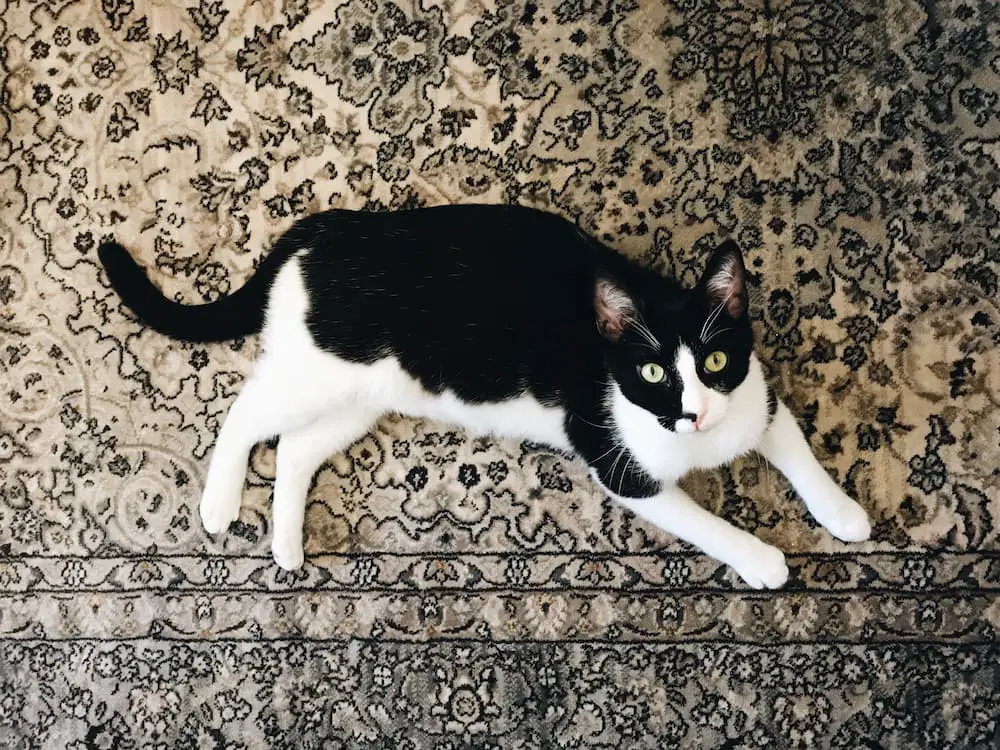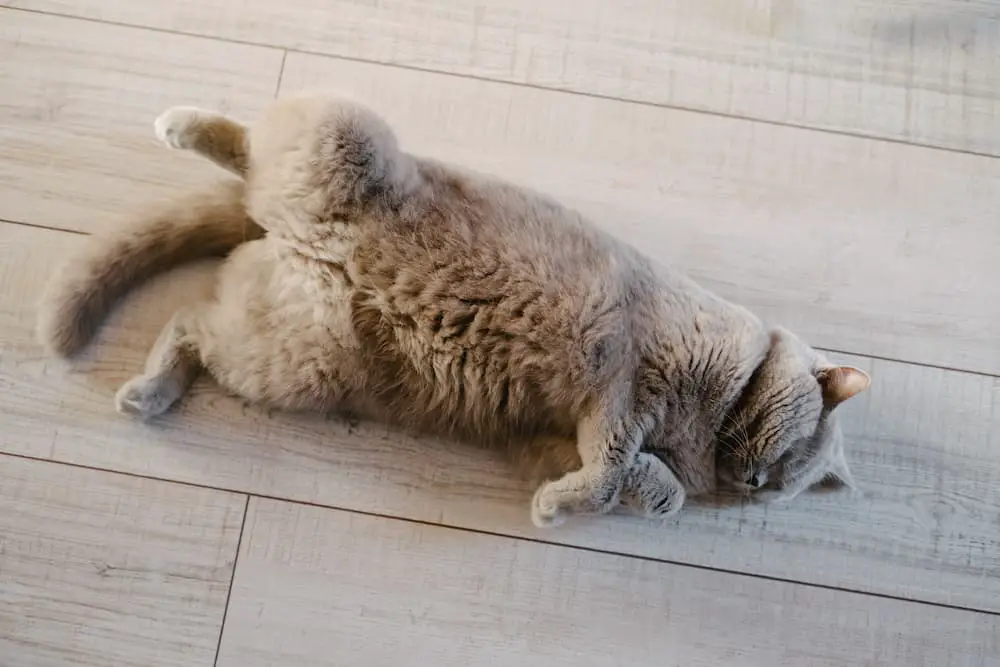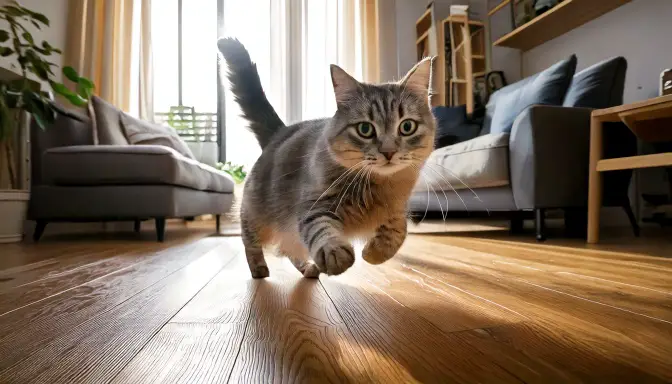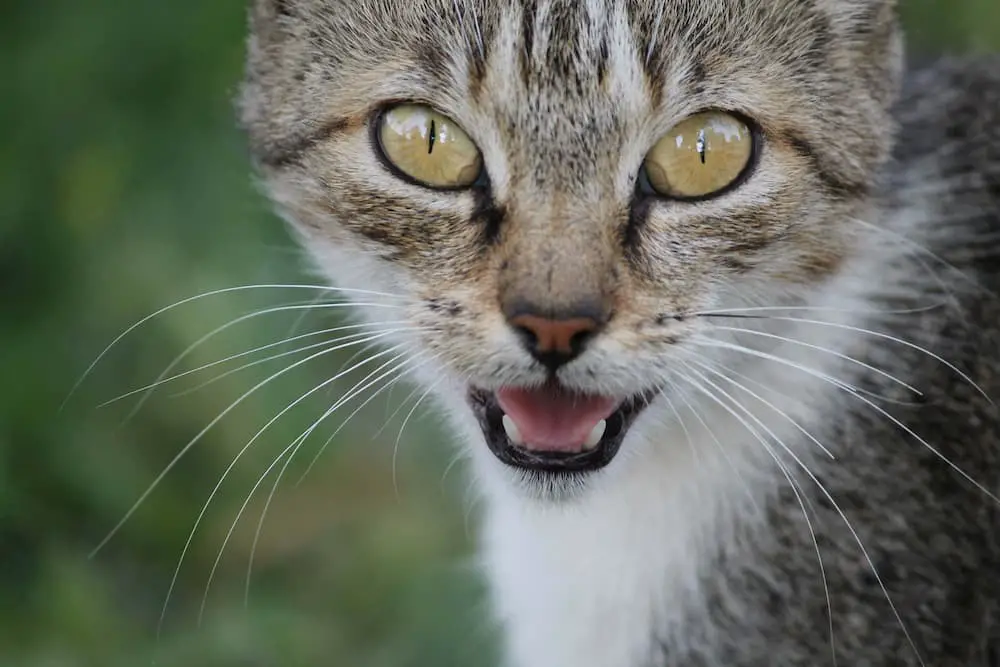Most of the time our cats are purr-fect companions, but every once in a while they exhibit some less than desirable behaviors- for example, messing with our houseplants, play biting, or begging for food. And, while these are perfectly normal feline behaviors, they are considered bad habits by those of us who share our homes with them! Fortunately, by taking a few steps, these issues can be resolved or (better yet) completely avoided!

KEEPING YOUR CAT OUT OF YOUR HOUSEPLANTS

Many cats love to munch on plants and dig around in the soil they’re growing in. Your prized potted houseplant may appear to your feline friend to be just another litter box! A cat that chews on your plants is not only going to destroy your plant, but he very well may harm himself – as many plants are toxic to cats. Be sure to check if a plant is safe before you bring it into your home.
Grow a feline-friendly indoor garden with plants like catnip and lemongrass and allow your cat unlimited access to “his” plants. Then take steps to deter your cat from chewing your other houseplants either by making them inaccessible or using deterrents, like anti-chew spray on or around the plant. If your cat likes to climb in the pot and dig around in the dirt or eliminate in the soil, try putting pine cones or a layer of stones on top of the soil.
GETTING YOUR CAT TO STOP PLAY BITING

Sometimes our kitty companions get a little too excited when it comes to playtime, and might get into the habit of “play biting” their human companions. While there isn’t usually any malice behind play biting – it’s not a behavior that should be encouraged. The most effective way to deal with a cat who has started play biting people is to redirect the biting to an appropriate object – a cat toy.
Do you have a cat that gets overstimulated during a play session and seems to suddenly attack? Well, the attack is usually not so sudden. The cat will have given subtle signs before lashing out that may include ears pinning back, body tensing, or a slight change in posture. If your cat is prone to this type of behavior, simply keep a toy (like a kicker) nearby when you’re playing with her and pay close attention to these subtle changes. When you notice the signs that she’s about to lash out, give her the toy to “attack” instead of your arm! Never allow your cat to bite you, but also, never punish your cat for biting you – as physical punishment only serves to cause further aggression in cats.

For those cat parents who have kitties who will hide around a corner and stalk their humans, jumping out to attack as they round the corner, try keeping a fuzzy mouse or lattice ball in your pocket and toss it near your cat if an ambush seems imminent. This will redirect kitty’s attention to the toy and away from you.
GETTING YOUR CAT TO STOP BEGGING FOR YOUR FOOD

Whoever coined the phrase “puppy dog eyes” obviously never had to look into the sad face of a cat relentlessly begging for a taste of his human’s dinner! The easiest way to prevent this behavior is to never let it start in the first place. If you’re a new kitten owner, don’t create a monster by sharing your food with your cat. Firstly, because most human food is unhealthy for our feline friends. But also, because one little bite could lead to a cat who stares at you while you eat, climbs up on the kitchen counters while you cook, walks across the dining room table while you eat, steals food off your plate, and generally makes mealtimes insanely challenging!
Establish a feeding pattern with your cat, and stick to it. Feed your kitty at the same time each day, and feed your cat in his own dish – never from the table or from your plate. Only feed cat food to your cat. What you choose to feed your kitty is your choice, but it should be a species-appropriate, carnivorous diet intended for cats.
Breaking the Bad Habit:
- If you’ve got a beggar on your hands, ignore the begging. Any attention – even the negative kind – is reinforcing your cat’s behavior. Don’t give her any verbal or physical attention at all.
- Feed your cat right before you eat. She’ll be less likely to beg with a full belly.
- Make sure you clean up any and all food from the table and counters after you eat. If your little furry beggar finds a tasty morsel, she’ll consider that a reward for her behavior.
- If you can’t break the habit, put kitty in another room during your mealtimes. She can’t beg if she can’t see you!
Does your cat have any of these bad cat habits? Let us know by posting a comment below.
If you found this article helpful, pin it!








